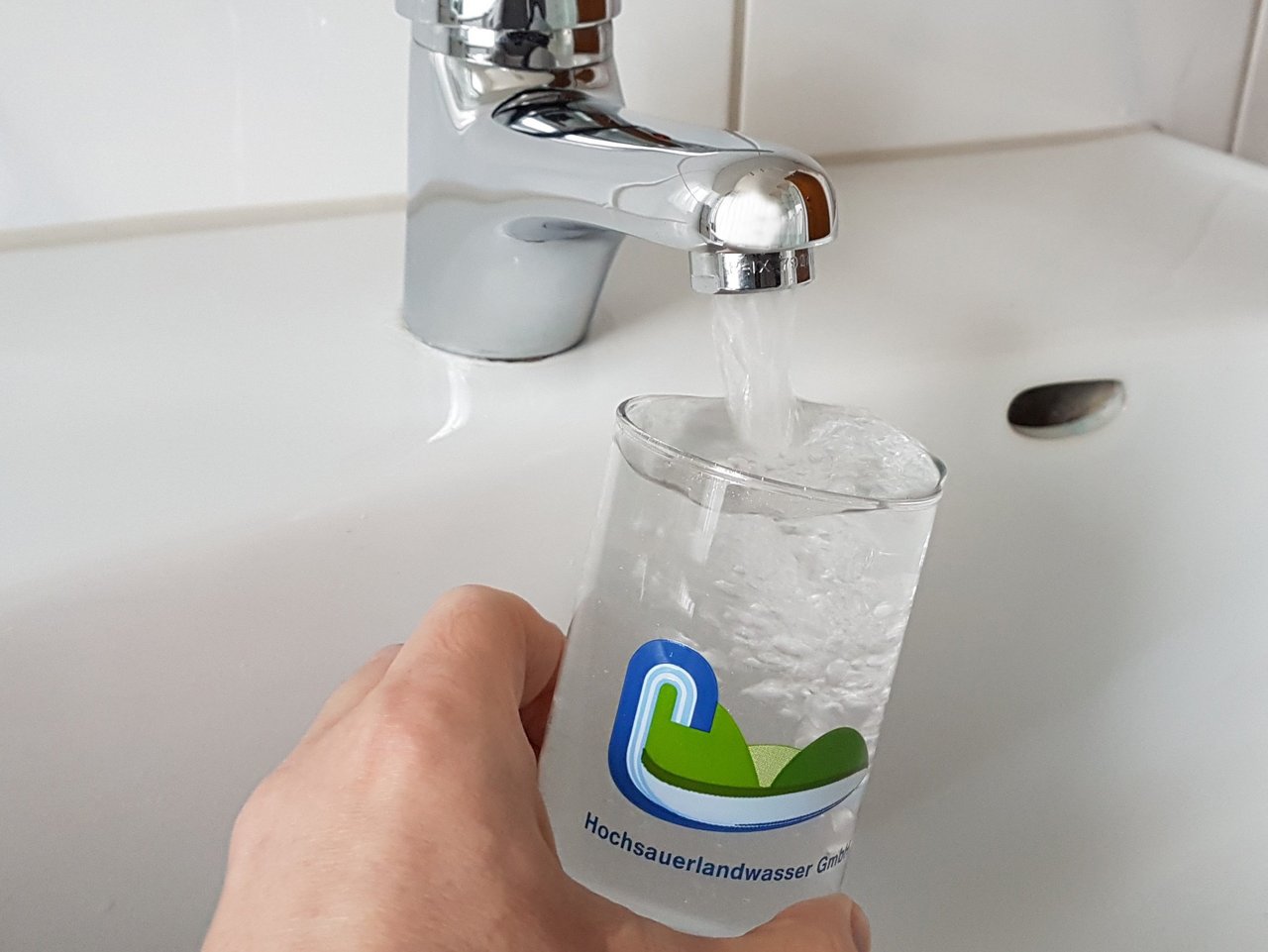Clean raw water for "Food No. 1"
World Water Day: HSW emphasises water protection
Meschede/Olsberg/Bestwig. Drinking water is the ‘No.1 foodstuff’ - the average person in Germany consumes around 122 litres of it per day. Germany's drinking water suppliers ensure that it flows reliably and in controlled quality from the tap. With their knowledge and expertise, they ensure that drinking water is a matter of trust. However, every individual can also do something to ensure the quality and cleanliness of the water cycle. To mark the annual World Water Day on 22 March, the local municipal company Hochsauerlandwasser GmbH (HSW) is highlighting the opportunities that everyone has to protect raw water as a resource.
‘Clean raw water is a first and very important prerequisite for pure and high-quality drinking water,’ says Björn Graw, Deputy Technical Director of HSW. The cleaner the raw water, the fewer substances have to be filtered out or adsorbed during the treatment process, which is time-consuming and costly, so that the ‘end product’ meets the strict quality requirements of the German Drinking Water Ordinance.
Undesirable substances often enter the water cycle via wastewater. Even wastewater treatment plants are not able to remove all substances without leaving any residue. HSW water manager Michael Stappert emphasises that it doesn't even take much effort to prevent substances from entering via wastewater - everyone just needs to follow a simple principle: ‘Waste doesn't belong in wastewater - the toilet is not a rubbish bin.’
An example of this: Medicines that are no longer needed or have expired. This is because many medically active substances can only be removed from wastewater with great effort and sometimes not at all. As a result, they end up in the water cycle, in plant and animal life and possibly even in drinking water. ‘This is why medicines that are no longer needed should not be disposed of in the toilet, but in household waste,’ says deputy water manager Steffen Tüllmann.
Paints, varnishes and solvents also represent a particular burden. They can easily be disposed of via the hazardous waste mobile. Michael Kappen from the HSW team: ‘Every local authority has such schemes - usually several times a year.’ Similarly, grease and cooking oil do not belong in the toilet or down the sink: as well as being harmful to the water, grease deposits in the wastewater pipes and blocks them.
HSW provides information on its homepage at hochsauerlandwasser.de/problemstoffe
about the environmentally friendly and water-conserving disposal of substances that are frequently found in wastewater. HSW employee Markus Rüthing: ‘For each individual, it's often just a small thing - but it has a huge benefit for water quality.’
Water protection areas are also of particular importance for drinking water extraction. Special regulations and bans apply here to protect the ‘raw material’ for the ‘No. 1 foodstuff’. If anyone notices water contamination in a water protection area in the towns of Meschede and Olsberg or the municipality of Bestwig, they should report this to HSW as soon as possible on 0291/992013 (in an emergency on 0170/9110011) - HSW will then report the incident to the relevant authorities. The earlier a contamination is noticed, the greater the chance of minimising the damage to the environment and drinking water resources - Michael Sommer, Technical Director of HSW: ‘That's why we are grateful for every report.’
Further information on the topics of drinking water treatment and water protection can be found on the Internet at www.hochsauerlandwasser.de.
